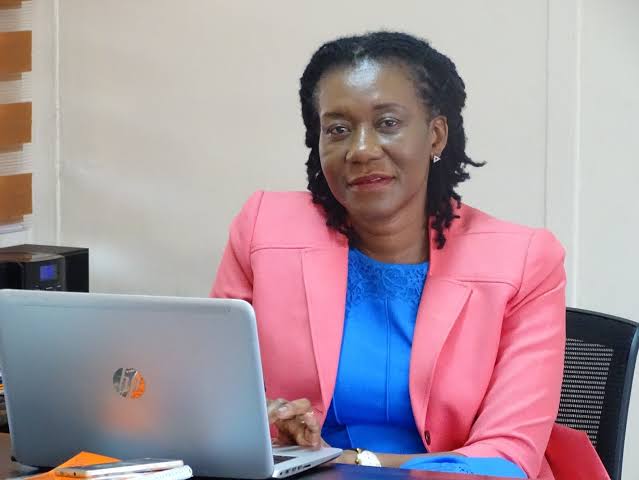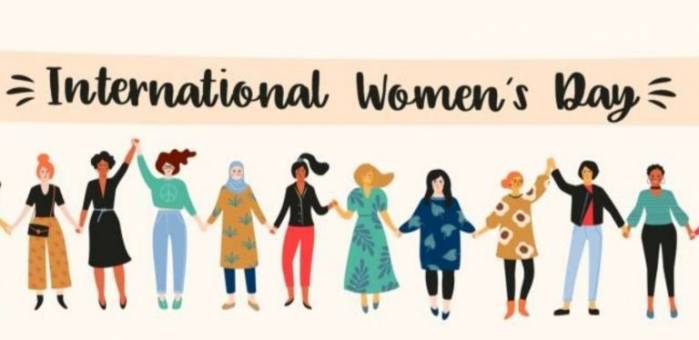In this interview, with ADEZE OJUKWU, the Executive Director of National Population Council and a member of the National COVID-19 Taskforce in Ghana, Dr. Leticia Appiah, called for urgency, in addressing the negative trend, in order to avert its far-reaching socio-economic consequences on the continent and its future.
TNE: Can you briefly speak about your academic and professional background?
I completed Medical School from Donetsk Medical Institute in Ukraine in 1993.
I obtained a Master‘s and PhD in Public Health from University of Ghana in 2003 and 2018 respectively. In 2011, I became a fellow of Hubert H. Humphrey Programme under the Fulbright Scholarship. During this period I obtained further training and experience, in HIV policy and prevention at Rollins School of Public Health, Emory University in Atlanta. I am the Executive Director of National Population Council, the highest statutory body set up by the constitution, which advises Government on population.
I am a member of Ghana AIDS Commission Board, National Steering Committee of the 2020 Ghana Population and Housing Census, Sustainable Development Goals(SDGs) and Technical Committee National COVID-19 Taskforce in Ghana.
TNE: What does an effective population management mean for a nation?
Effective population management starts with reduction of high-risk pregnancies, which ultimately improves the lives and livelihoods of citizens. This makes it easier and cheaper to implement other policies such as education, housing, sanitation, employment and security.
TNE: What is the role of government in population management?
Governments have the prime responsibility for the provision of policies and programmes aimed at harnessing the human capital. Consequently, this will improve the quality of life of its citizens and make the nation a prosperous one.
Population is every nation’s most valuable resource, but for it to be fit for the purpose, it needs to be transformed into capital through systematic and timely investments in adequate nutrition, health and education.
Just like crude oil, a natural resource needs to be refined for value addition before it can be consumed.
At the very core of our conversation on sustainable development therefore is how many people we have and can adequately plan for at any point in time without destroying the ecosystem that sustains lives.
TNE: How does high population growth affect unemployment, poverty and public health?
Employment is a condition for prosperity, community stability and national development.
Rapid population growth makes it more challenging for governments and private sector to create jobs. The correlation between fertility levels and future employment opportunities for young people should be clear. With high fertility rates, high population growth rate could outstrip the nation’s ability and capacity to provide necessities for good health cognizant of the finite nature of resources, such as land and water. Again, governments may have difficulties in providing adequate and quality education as well as jobs for the huge number of people, to meet the requirements of 21st century. This could chronically lead to low savings, unemployment, underemployment and poverty, which threaten sustainable development.
TNE: What is the impact of the region’s high population growth rate on the response to COVID-19?
Generally, high population growth in Africa affected its response to coronavirus in several ways, especially with the lockdowns in several countries.
Undoubtedly, population structure is a major factor for underdevelopment and economic stagnation. Africa has a youthful population and ensuring their reproductive health needs are met is imperative to contain and slow the high population growth rate during the pandemic and beyond. However, during the lockdown, access to family planning and reproductive health services was restricted, especially for the poor.
This obviously could have led to unplanned and accidental pregnancies, thus adding to family and national responsibilities. Also, with children out of school, many girls from poor families may end as child brides, contributing to high population growth, widening inequality and ravaging poverty gaps.
TNE: What is the significance of COVID-19 to Africa?
The pandemic underscores the need to place equal premium on population dynamics, public health and economics, as important variables in the simultaneous equation of sustainable development for maximum impact.
COVID-19 offers an opportunity to reflect on the linkages between population and socio-economic policies that healthily balance the supply of labor and the job opportunities to meet our development targets. This will ultimately, create the Africa we want.
The pandemic offers Africans the opportunity to rethink resilience, amidst physical and social distancing. With closed borders and protective equipment in short supply, self-reliance and economic growth should be central to our agenda.
TNE: Can you highlight strategies to improve acceptance of family planning in Africa?
In resource constraint settings, the right health policy, such as family planning contributes to improving macro-economic policies by keeping people healthy and productive, in all spheres of life, from education to skill acquisition and employment. To improve acceptance of family planning two main approaches are critical. Firstly, advocacy and awareness creation, are needed to build coalitions and support among key actors and decision makers at all levels to overcome barriers to supporting a family planning campaign, as a developmental programme. Secondly, implementation of a national communications campaign among all sectors at the national, district, and community levels on the critical role of family planning in poverty reduction.
TNE: How can governments and regional bodies work with stakeholders, including traditional and religious leaders to manage population?
All stakeholders including religious organizations should work together to improve quality life of citizens. Evidence shows that investment in family planning improves quality of life. In reference to religious leaders, the fact that religion and spirituality entreat us to harness our God-given talents for his kingdom’s purpose and our common good forms the basis for planning. To achieve this, reducing high population growth rate by reducing child marriage, teen pregnancies and other high-risk pregnancies makes it easier for families and governments to adequately invest in skill development and other productive ventures. All these will empower citizens to become financially independent.
Majority of Africans have a religious affiliation, so engaging religious leaders, as stewards of population management, is critical, in addressing Africa’s population dynamics. The strategy is to develop problem points, based on the impact of unmanaged populations, in order to identify solutions at the community level. The potential outcomes will include sensitizing majority of the country to population issues, through trusted sources, while countering the perception that religious authorities will not support population efforts.
READ ALSO: Fraud In NDDC: Ojougboh Exposes Some Key Actors
TNE: Africa has enough expertise on development. Why are African governments not implementing solutions already working in China or India?
The reasons are many. However solutions, which have worked for other countries, may not necessarily work exactly the same way. Each country is unique and dynamic.
It cannot be one size fitting all. The socio-economic and cultural nuances of Africa must be considered in implementation of programmes, which may have worked in other regions. Africans must come to the realization that high population growth rate is a challenge and a sustainer of poverty. We need to confront head-on and find appropriate ways to communicate the need to reduce the growth rate to enable quality human capital accumulation for sustainable development, especially in the 21st century. Generally, human capital enables nations and families to overcome poverty.
TNE: How will the region integrate strategic planning in human capital development policies?
Accumulation of human capital has a right order and optimal timing just like prevention of COVID- 19 has its own protocols, which do not take into consideration our wishes, dreams, habits and cultures. Human capital accumulation is not ad hoc programme. It involves a strategic plan with appropriate investments along with the critical role of population dynamics in development frameworks.
Environmental, social and economic agenda can no longer be pursued, separately but must be merged into a single sustainable, inclusive and equitable growth policy which will invariably lead to improved productivity and reduction of inequality in society.
TNE: Can you mention a few practical strategies on diversifying the African economy.
Labour and education policies should keep up with the pace of innovation with talent adaptability. They are critical in helping nations cope with disruptions, such as COVID-19.
A holistic approach will better balance short term considerations against factors, because their impact is felt beyond short term cycles. COVID-19 has indeed ignited our creative and innovative skills to start production of needed Personal Protective Equipment (PPE) and ventilators, due to the universal demand for them. We cannot continue to depend on other nations for things we can easily produce. This is pointing us to the need to focus more on technical education and industrialization of our countries and less reliance on imported finished products.












